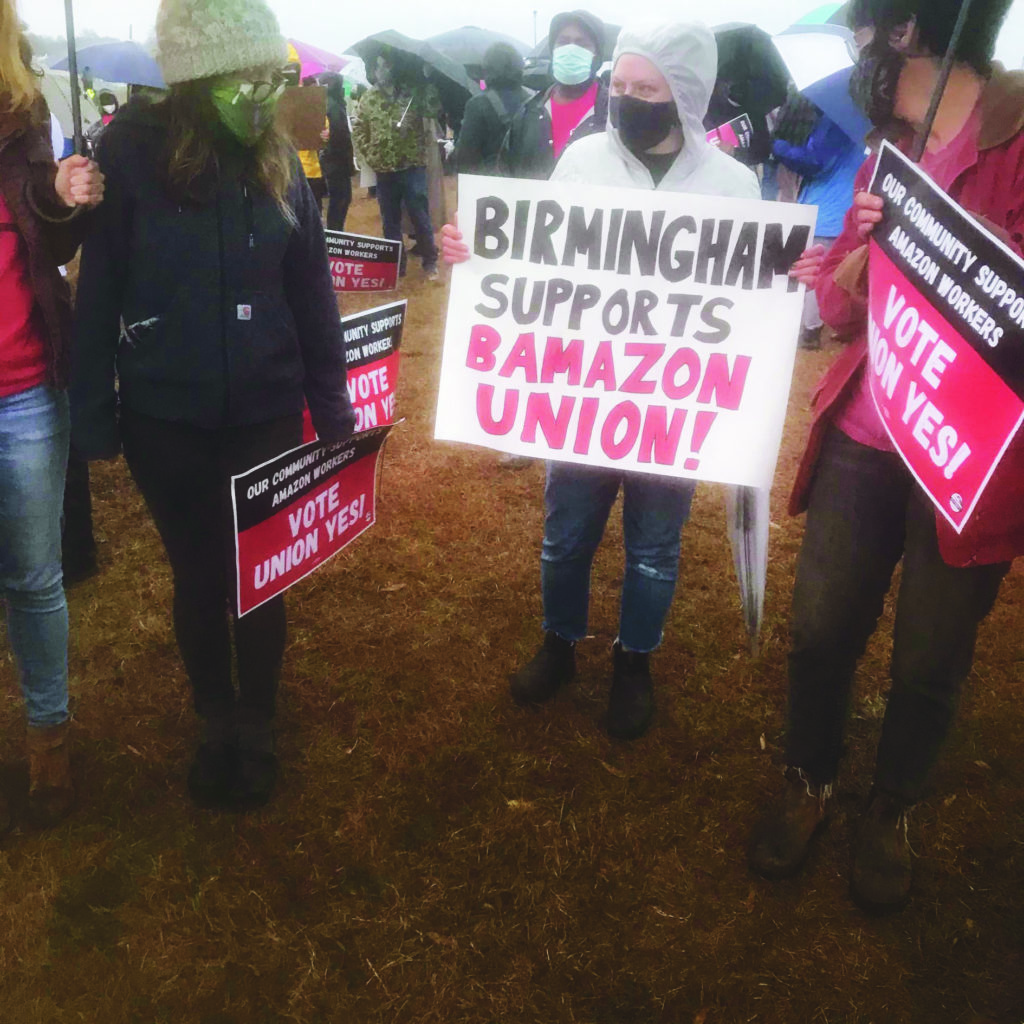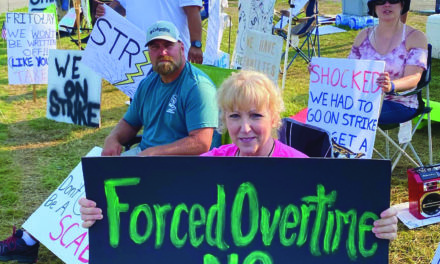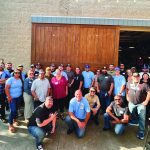America Watches as an Historic Vote to Unionize an Amazon Warehouse in the Deep South Brings Labor Issues to the Forefront
The workers in Bessemer never thought they’d spark a national discussion. This is their moment, but it’s not just about Amazon. This is about every employer, and the right of every worker to fair pay, safe workplaces, a voice in their workplace and the right to organize unions without illegal harassment and intimidation. It is about the inseparability of racial and economic justice. By taking the fight to the world’s most powerful company in a way that previously seemed unthinkable, Amazon workers are proving that change is within the grasp of any worker, anywhere. Employees in workplaces large and small can look at the progress being made in Alabama and realize that they too can stand together with their fellow workers and demand justice.
With their historic campaign, Amazon workers have already won. It’s up to all of us to build upon their victory.”
— Stuart Appelbaum, President, Retail, Wholesale and Department Store Union

It is fitting that an historic vote began at a Bessemer, Alabama, Amazon warehouse during Black History Month. The mostly black workforce, in a right-to-work state nonetheless, could be the first Amazon employees to unionize at the retail behemoth.
“It’s significant that it’s a movement of primarily Black workers and women—the workers have that have been most impacted by the pandemic,” said Harvard Law Professor of Labor and Industry Benjamin Sachs.
A win at the Bessemer warehouse would be a “huge victory for economic and racial justice,” Sachs remarked.
Although the Bessemer warehouse isn’t the first location to attempt to form a union at Amazon, it is the largest effort to date in the U.S.
Bessemer is a town rich with labor history. Founded in 1887 by Steel Baron Henry Debardeleben, the area was heavily unionized in the 1930s under the International Union of Mine, Mill and Smelter Workers, often called the “Mine Mill.” An interracial union, though primarily black, organized workers at the Tennessee Coal, Iron and Railroad Company, Sloss Sheffield, and at Woodward Iron Company.
During this time, the union advanced workers’ rights and civil rights under the leadership of Ashbury Howard, called a militant and powerful leader by Historian S. Jonathan Bass.
Although Mine Mill and the companies that employed its members are gone, Bessemer—the small town outside of the famed civil rights city of Birmingham—is on the cusp of once again blazing labor history.
Ironically, Amazon purchased the land in Bessemer from U.S. Steel, the parent company of the now closed Tennessee Coal, Iron and Railroad Company where Howard and the Mine Millers fought for fair wages, workers’ rights, civil rights, equality, and safety on the job. The union drive at Amazon is now led by the Retail, Wholesale and Department Store Union (RWDSU). Calling itself the BAmazon union, the group points to unsafe working conditions, especially since COVID, as a driving force behind its push to unionize.
Stuart Appelbaum, president of the RWDSU says that workers feel betrayed by employers that didn’t or haven’t done enough to protect them from the virus. Appelbaum also says that the Black Lives Matter movement has helped fuel the demand that people be treated with respect and dignity. “They want a voice in their workplace.”
Whether the union will prevail remains to be seen. Mail in voting began in early February and ballots must be returned by March 29.
At the time of printing, results of the election were not yet available. ■







